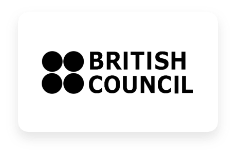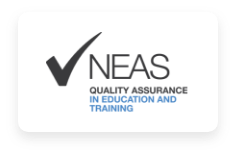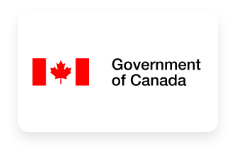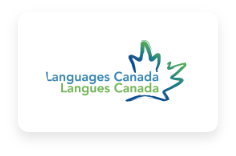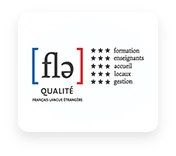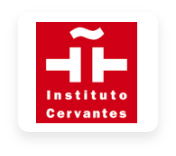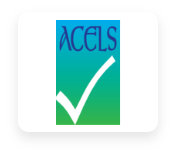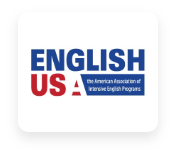For the latest updates about our schools click here
发现 Eurocentres
70年的经验
Eurocentres 于1948年诞生,我们致力于将学习转化为丰富个人经验的一种方式。从那时起,我们已经发展成为国际语言教学的市场领导者,在欧洲、美国、加拿大以及新西兰、南非和澳大利亚都有学校。
-

我们为您提供便利
全球网络的学校和多语种顾问为您服务。我们为何成功
我们想确保您和我们一道度过最美好的时光。拥有如此多的选择,选择一所完美的学校似乎是一项艰巨的任务。这就是为什么我们用10种不同的语言提供帮助和建议,专家顾问将用他们自己的行业经验来指导您。-
 如果您对未来的课程、住宿、甚至社交生活有任何疑问,可以通过我们的网站或联系您心目中的学校提交请求。您的请求将由一位专职人员亲自处理,以此确保您得到专人协助。
如果您对未来的课程、住宿、甚至社交生活有任何疑问,可以通过我们的网站或联系您心目中的学校提交请求。您的请求将由一位专职人员亲自处理,以此确保您得到专人协助。
-
-

我们在语言教学领域做出了巨大的贡献
自1948年以来,Eurocentres 致力于改善全球学生的学习体验。我们在语言教学领域做出了巨大的贡献
1990年,欧洲语言政策委员会赞扬 Eurocentres 协助发展欧洲语言学习和评价的关键框架,即欧洲语言环境评价。-
 当您到达学校时,您将根据您的 CEFR 水平(欧洲语言通用参考框架)被分到一个班级。这是确保您以正确的节奏学习,您学习的材料适合您语言水平的最准确方法。
当您到达学校时,您将根据您的 CEFR 水平(欧洲语言通用参考框架)被分到一个班级。这是确保您以正确的节奏学习,您学习的材料适合您语言水平的最准确方法。
-
-

我们在课堂内外提供学习机会
我们相信,成功的语言学习是一种个人经历,可以在任何地方发生。Eurocentres 的学校可以让您轻松地融入目的地国家的文化。我们在课堂内外提供学习机会
在本地教师或专业导游的指导下,学生可参加专业的社会活动,结交新朋友,安全地探索新环境。-
 向您目的地学校的工作人员寻求帮助和建议,预订旅行和参加每周的活动。
向您目的地学校的工作人员寻求帮助和建议,预订旅行和参加每周的活动。
-
-

我们相信伙伴与合作
自1948年在伯恩茅斯开办第一所学校以来,Eurocentres 已经成为一个国际组织,将学生与全球19个不同地区的学校联系起来。我们相信伙伴与合作
通过几十年的国际合作,Eurocentres 学校在欧洲、北美和南太平洋地区建立了长期的合作关系。-

无论您的梦想是在国外工作,在不同的国家学习,亦或仅仅是为了提高自己的语言技能,Eurocentres 模式都能让您轻松实现目标。我们为您的过渡过程提供便利,从最初的预订和查询阶段,直到您入住的最后阶段。
-
-
70 年
-

发现 Eurocentres
Eurocentres 成立于70年前,是世界各地人民的聚集地。七十多年来,它在语言教学领域做出了巨大的贡献,并一直致力于通过提供优秀和创新的教学来改善学习体验。
-
15,000 名学生
-
100% 成功保障
-
87% 学生给予我们“优秀”评价
-
50年 欧洲理事会语言教育顾问

70年的成就
拓荒时期:1948年至1960
1960年
杜特韦莱以 Eurocentres 的名义成立了一个独立的基金会,创建了他所说的“欧洲语言和教育中心”。在该基金会学习的学生总数上升到4300人。
最初的扩张时期:1960 - 1975年
1960: Collaboration with France, Spain, and the USA begins.
1968: Eurocentres receives the "Statut Consultatif de la Catégorie 1" - advisory status in the field of language teaching and learning - from the Council of Europe.
1975: The number of students exceeds 20,000 per year.
Implementation Period: 1975 – 1985
1977: The first purpose-built school in London showcases innovative classroom design and self-learning facilities, as well as facilities for Computer Assisted Language Learning.
1984: Eurocentres Cambridge, the second model school for teaching adults, follows.
1977
Second Expansion Period: 1986 – 1999
1986: The first purpose-built school for teaching German opens in Cologne.
1988: New centres are opened in countries outside of Europe, including the USA and Japan.
1990: Eurocentres aids in the development of the CEFR (Common European Framework of Reference for Languages) and is commended by the Council of Europe Language Policy Unit for its contributions.
1991: With the completion of a new purpose-built school in La Rochelle, there are now 3 year-round schools in France – Paris, Amboise, and La Rochelle.
1993: The "Eurocentres Scale of Language Proficiency" is put into practice. It is followed by the development of a computerised language testing system which enables teachers to generate reliable tests according to students' individual needs.
1995: The first consultancy agreements take shape in in Switzerland, Spain, and Brazil.
1999: International collaboration leads to partnerships in Canada and Malta.
1993
Third Expansion Period: 2001 – 2008
2002: There are now two Eurocentres schools in Canada, and further partnerships develop with schools in Malta, Australia and Spain.
2005: There are now two Eurocentres schools across Australia and a centre opens in Auckland, New Zealand.
2006: Cape Town, South Africa, opens its own centre.
2007: A new school for teaching German opens in Berlin.
2008: The Eurocentres school network in Australia is completed with the opening of Eurocentres Sydney. Today: Eurocentres remains an internationally-recognised organisation, with a network of schools, agencies and offices dedicated to maintaining global dialogues across cultures.
Accreditations
成功故事
-
中本友希
 “感谢 Eurocentres 的帮助,我有机会在当地一所小学做志愿者。”
“感谢 Eurocentres 的帮助,我有机会在当地一所小学做志愿者。” -
安德丽莎·罗德里格斯
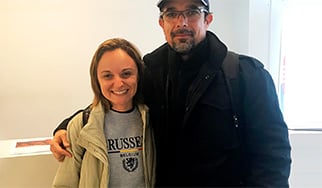 “课程材料很棒,老师也很棒!我爱他们所有人。”
“课程材料很棒,老师也很棒!我爱他们所有人。” -
Fusako Ishikawa
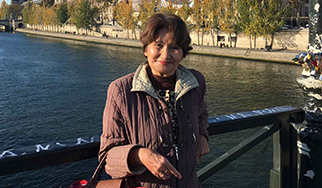 “我不仅学习了法语,还了解了法国文化、生活方式、美食和葡萄酒。”
“我不仅学习了法语,还了解了法国文化、生活方式、美食和葡萄酒。”

